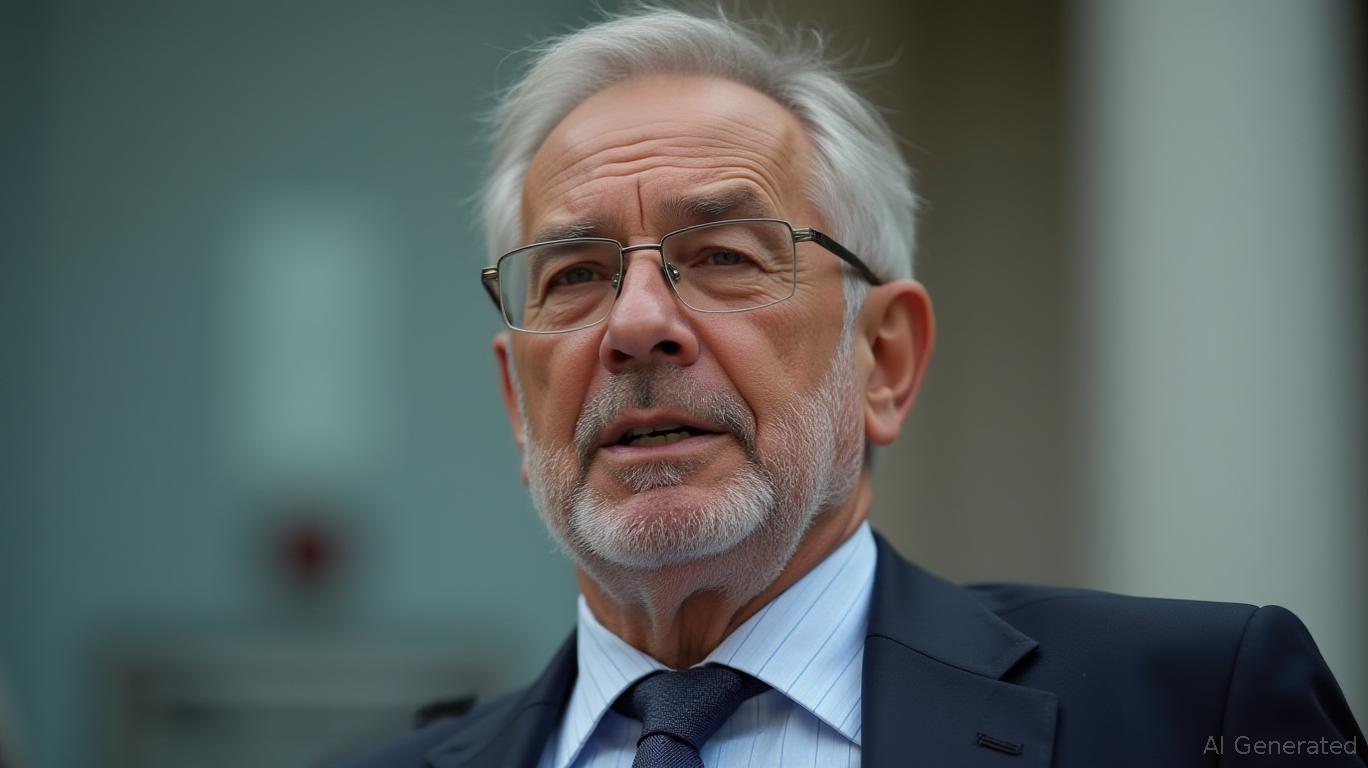U.S. Support or Political Move? Argentina's Risky Peso Strategies
- Argentina's Milei secures election win, strengthening austerity reforms aligned with U.S. priorities. - U.S. Treasury deploys $20B currency swap to stabilize peso, sparking election-timing debates. - Peso gains 0.1% amid market volatility, but 100%+ inflation and fiscal fragility persist. - U.S. seeks Argentina as Latin American counterweight to China, negotiating minerals/infrastructure deals. - Domestic tensions rise as opposition accuses U.S. of interference, while default risks remain unaddressed.
Argentina’s President Javier Milei is on the verge of a major political resurgence after his libertarian party, La Libertad Avanza, took a commanding lead in Sunday’s midterm elections, based on preliminary tallies. With 92% of ballots counted, the party captured 41% of the vote and secured 64 out of 127 seats in the lower house, while the Peronist opposition trailed with 24.5%, according to
U.S. Treasury involvement in Argentina’s economic stabilization ramped up prior to the election. Last week, a $20 billion currency swap deal was completed with Argentina’s central bank, alongside direct Treasury purchases of pesos to help steady the currency, according to a

Financial markets initially experienced turbulence, as the peso ended a five-day losing streak with a slight 0.1% uptick. However, experts warn that fundamental issues—such as inflation exceeding 100% and a precarious fiscal situation—remain unresolved. JPMorgan and Citigroup intervened in Argentina’s currency market to support the peso, as first reported by the
Milei’s win also carries strategic weight for U.S. interests in Latin America. The Trump administration has promoted Argentina as a counterbalance to China’s expanding economic influence, which includes a smaller swap arrangement with Beijing. Separately, the U.S. International Development Finance Corporation (DFC) is in talks with Argentina on critical minerals and infrastructure projects, aiming to reduce the country’s debt while strengthening U.S.-Argentina economic ties, as reported by
Despite the apparent electoral gains, Milei’s reform agenda still faces obstacles. Achieving at least 35% of the vote was seen as essential for a veto-proof majority in Congress, but even with increased support, rapid legislative changes may be elusive. According to JPMorgan analysts, while U.S. backing could lower Argentina’s political risk premium, the country’s default risk remains high unless credible steps are taken to replenish foreign reserves, as noted by
The election results have also reignited political friction at home. Opposition leaders accused the U.S. of interfering in Argentina’s domestic affairs, with former Defense Minister Jorge Taiana accusing Trump of “blackmailing the Argentine people” on social media. Meanwhile, American lawmakers have called for greater transparency regarding the swap deal’s terms, including collateral and potential risks to taxpayers.
As Argentina’s markets await post-election direction, uncertainty persists. Although Milei’s party appears set to expand its influence in Congress, the durability of U.S.-supported economic strategies—and the peso’s stability—will hinge on the administration’s ability to enact structural reforms without worsening fiscal vulnerabilities. For now, the peso’s modest recovery and a rally in dollar-denominated bonds indicate cautious optimism among investors, though concerns remain about the possibility of a “Black Swan” event if political or economic instability returns.
Disclaimer: The content of this article solely reflects the author's opinion and does not represent the platform in any capacity. This article is not intended to serve as a reference for making investment decisions.
You may also like
U.S. and China Reach Rare Earth Agreement: One Year of Stability Despite Ongoing Competition
- China suspended new export controls on rare earths and other materials for one year, easing U.S.-China trade tensions via a Trump-Xi agreement. - The deal includes U.S. tariff rollbacks and China halting investigations into semiconductor firms like Nvidia , with provisions expiring in 2026. - Experts warn China's 90% refining dominance and low-cost production ensure its strategic leverage remains unchallenged despite temporary concessions. - U.S. rare earth stocks rose, but analysts stress global supply

Bitcoin Updates: Clash Between State Legislation and Community Interests: Texas Community Fails to Enforce Regulations on Bitcoin Mining Operation
- Mitchell Bend, Texas residents rejected incorporation by 25% to regulate a Bitcoin mine's noise pollution, highlighting tensions between crypto operators and communities. - Marathon Digital Holdings opposed the move, filing a 47-page lawsuit claiming it violated state law and would harm operations, but a federal judge denied its restraining order request. - Proponents vowed to continue legal battles through Earth Justice, citing health complaints like sleep disturbances and nausea linked to the mine's co

Bitcoin Updates: Texas Community's Attempt to Control BTC Mining Falls Short, Underscoring Ongoing Regulatory Hurdles for the Industry
- Hood County voters rejected Mitchell Bend's incorporation bid by 25%, blocking noise regulations on MARA's Bitcoin mining facility. - MARA sued over petition flaws, claiming the proposed city aimed to "regulate it out of business," but the case was dismissed before the vote. - Residents cited environmental concerns while MARA implemented noise mitigation measures, highlighting tensions between crypto mining and local communities. - The outcome underscores regulatory challenges for Texas-based miners as l

Lina Khan will serve as co-chair for the transition team of New York City’s incoming mayor, Zohran Mamdani